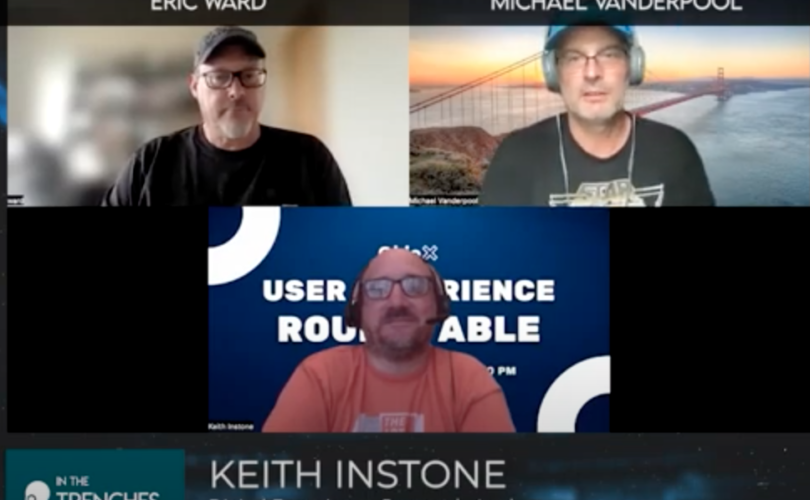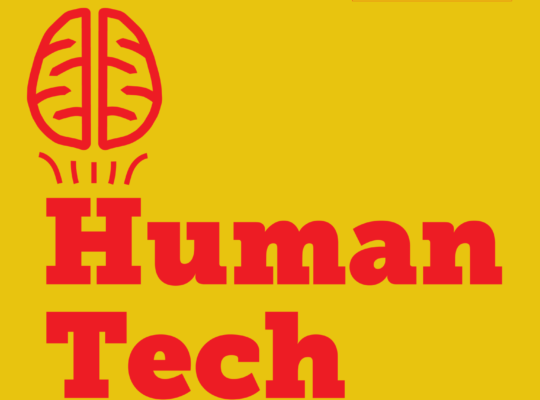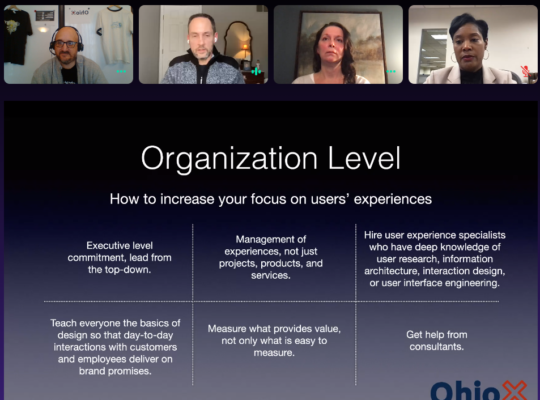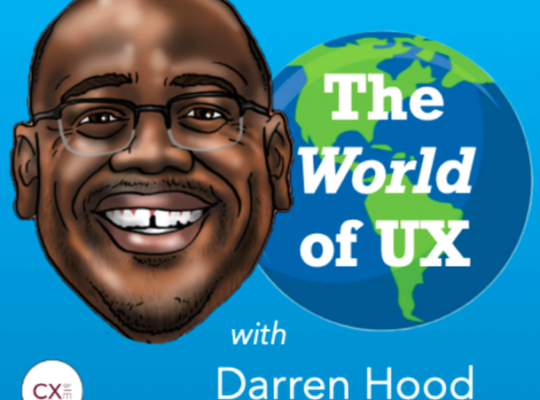I was recently on the Learning Experience Design: In the Trenches podcast with Michael Vanderpool and Eric Ward to talk about User Experience.
I used my 4 aspects of UX that evolved from my UX Spins presentations to guide the discussion.
- Impressions people form as they interact with technology
- Activities you can do to define, design, and deliver good user experiences
- Capabilities organizations establish as they manage customer, employee and other experiences
- Communities that learn together, get jobs, and act as professionals
A few highlights of what we talked about:
- Designing hybrid conferences
- Building up an Ohio technology innovation community
- Framing: “UI / UX”, design/build, Agile software development, front end/back end
- #1 “Everybody has experiences with technology”
- The user interface is that bit of technology people interact with, which sometimes can be quite “invisible”
- UIs embedded in technology ecosystems (Apple vs. Android, for example) and “intuitiveness”
- “You cannot separate user experience from culture”
- #2 Methods that we do to define, design, and deliver experiences, create technology
- Engineering-centered design, business-centered design, user-centered design, human-centered design
- Usability testing as a method with many uses
- Perception of your users is the only reality that really matters
- Design is a crucial part of the process, but there is still stuff before and after design which affects users’ experiences (e.g., non-functional requirements)
- #3 Doing UX work in the context of an organization: teams, managers, politics, HR, marketing, software developers, oh my!
- For most companies, their digital experience is their brand (and crucial to their business success)
- UX capabilities help executives empathize with their customers (and employees), “elevate awareness of experiences”
- Challenges in making experiences pleasant and secure
- UX teams understand current experiences, design future experiences, evaluate to see if on track, and map to business goals; and deal with corporate politics
- #4 Communities to help cope with work, learn skills, gain credibility, act as a profession
- UX practitioners come from many diverse backgrounds, hard to evaluate skills for a job description
- Deal with corporate politics by getting colleagues to focus on their users/goals and agree on what to do for the good of users
- Be able to discover how people use new technology as it evolves
- Different uses cases for learning about UX, such as goal to be a User Experience Practitioner (have a job to do this every day)
- Wrap up: Food metaphors
- Just because you eat does not mean you are a chef (#1)
- Learn how to be a good cook (#2)
- Managing restaurants (#3)
- Different career paths in the food industry (#4)
- UI as the utensils & menu; your experience comes from the ambiance
- What’s the point of being human if everything is turned into a user interface?
Listen or watch Episode 20 “User Experience with Keith Instone”.





